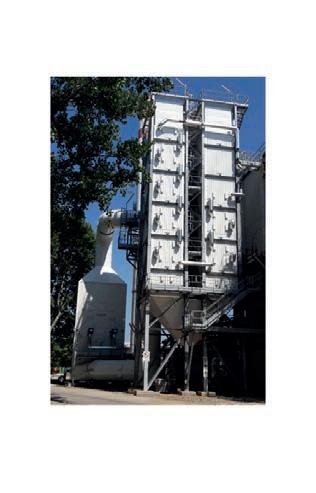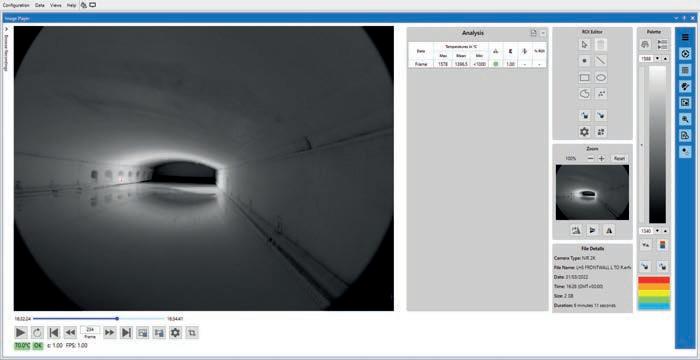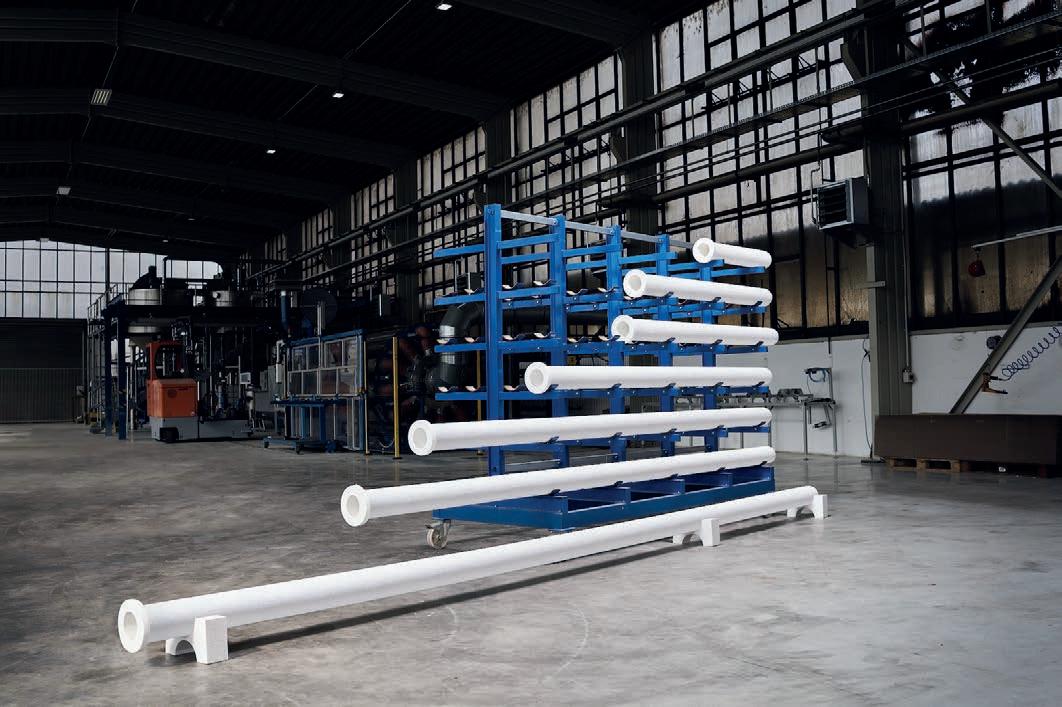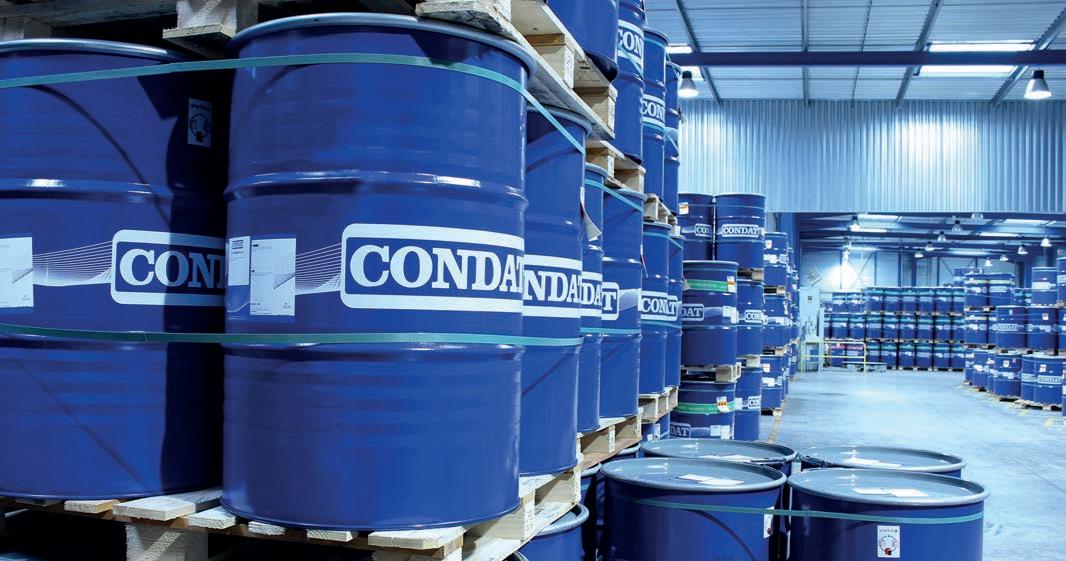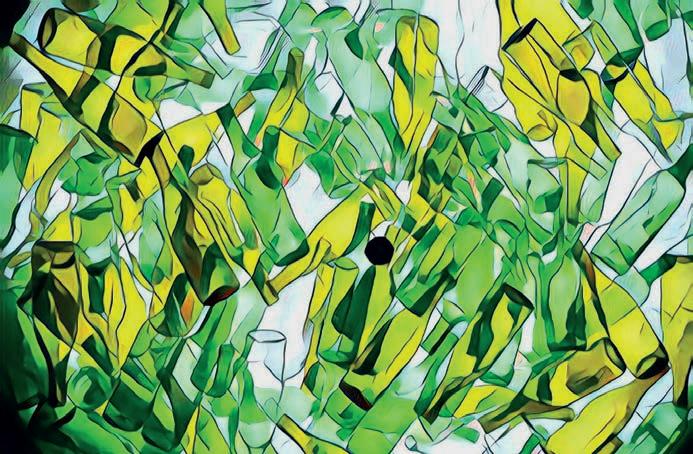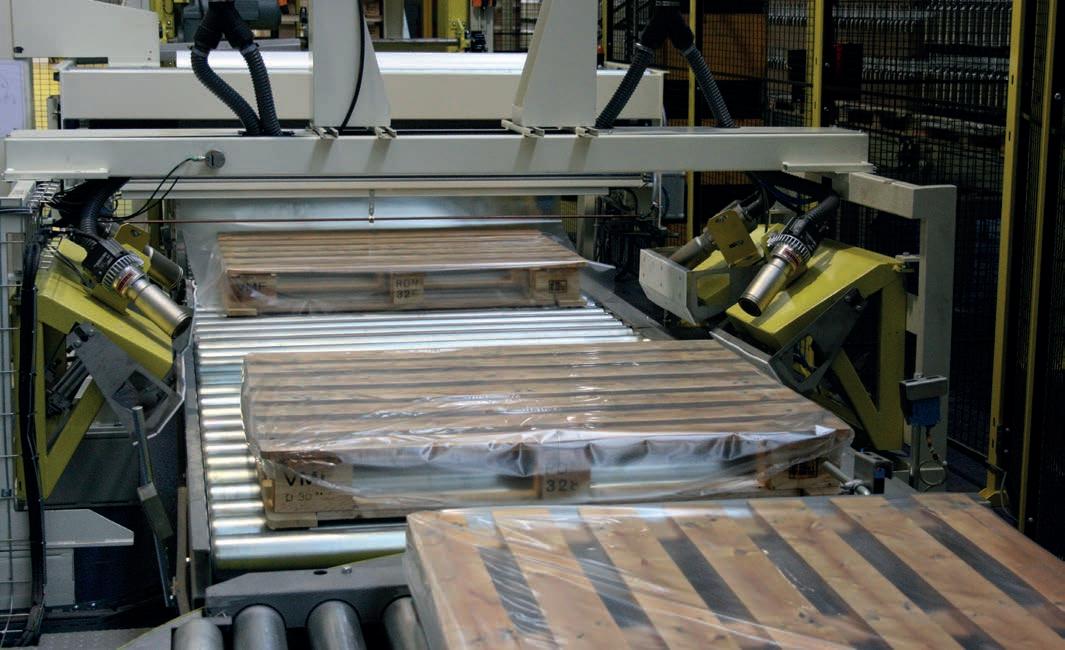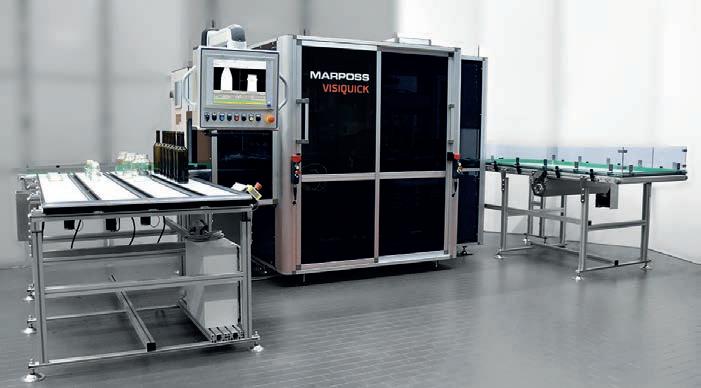
5 minute read
Measurement: Marposs
enefits of e ible automatic measurement in glassma ing
Eleonora ordini discusses the advantages of introducing e ible automatic measurement systems in the glassma ing process. he suggests what should be ta en into account to choose the best solution from those available in the mar et.
Outside the sphere of experts, there is somehow confusion on the meaning of “measurement” “inspection” and “testing”.
Sometimes they are wrongly used as synonyms to generically indicate “controls” to be carried out on an article.
Let’s try to clarify.
“Measurement” means checking dimensional and physical features, such as dimensions, shape, weight or thickness.
“Inspection” means to check cosmetic features or the presence of defects, such as inclusions, cracks or other irregularities.
“Testing” is the process of checking the compliance with functional specification, also by destructive means.
This article will be focused on measurement.
Measurement is present at different phases of the glassmaking process, mainly, but not only, at the cold-end. It can be carried out near the manufacturing line, or in a Quality Control Laboratory, by means of go-no go or manual gauges or by means of flexible semi-automatic or automatic systems.
The use of go-no and manual gauges has several drawbacks. � No quantitative information available about the size of the problem. � Results relies on the operator’s skill. � A set of go-no go gauges is required for every article in production. � Costs related to purchasing, managing and periodically calibrating a very big number of hard gauges. � Manual gauging is a manpower intensive process. � No data collection, no statistics, no process trends detection, no comprehensive information available to intervene on the process.
In other words, if there a problem is detected, there is no comprehensive information to handle it. Most likely the consequence is a process not in control.
For all these reasons and for others more, any glass container manufacturer will have to face, sooner or later, the decision to switch from manual to automatic measurement.
When this decision is taken, the next step is to choose the solution, among those available in the market.
It must be said that there is no “absolute best” solution. The best solution is the best one for the characteristics of the specific glassmaking plant and the range of articles produced.
Then, what should be taken into account? � First of all, the investment in an automatic measurement system will last approximately 10 years. So, a wrong decision, can have a quite serious impact. � A good suggestion is to take the time to think which are the necessary
Fig isi ic a f ll a tomatic fle ible machine, with automatic handling.
requirements. � Define the level of automation required (fully automatic or semiautomatic). It should be considered that a fully automatic flexible machine, with multi-conveying systems, working 24/7 will dramatically reduce the need for manpower, thus leading to a very short return on the investment (ROI). � Seek for alternative solutions and evaluate them carefully. � Make sure the machine you are choosing really meets the needs. Do not look just at specification on the catalogues, but visit the supplier’s plant and make tests on the machine. � Total flexibility, that is the capability to measure all the manufactured container without any job change, is a must-have feature. � Easy and intuitive programming facilitate the use of the machine also from operators without too much experience. � Possibility of future upgrades allows
Fig 2. VisiQuick-mini is a semi-automatic fle ible s stem ith man al container loading/unloading.
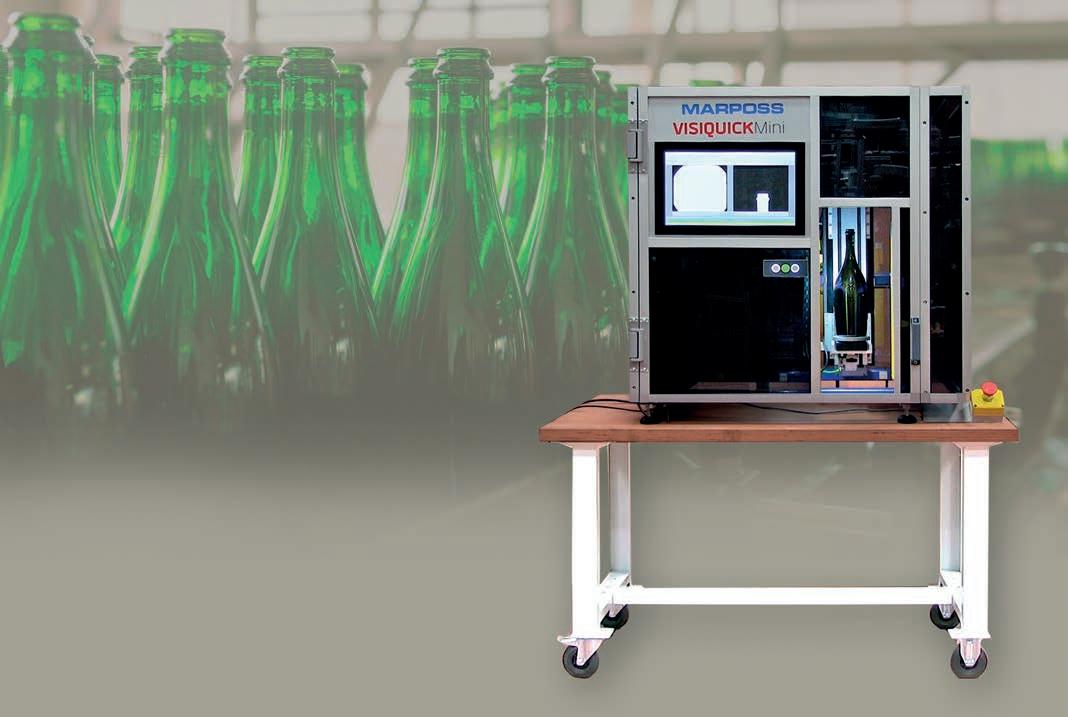
to have a machine able to safisfy future needs � Check the compatibility and level of integration with the manufacturing execution software (MES) used in your plant. � Do not limit your investigation to a single supplier. � Check the supplier’s references, credibility and, above all, experience in metrology as well as his after sales service capabilities.
Marposs can supply solutions with different level of automation, to match the need of any customer and production environment.
The solution with the highest level of automation and the widest number of available controls is VisiQuick, a fully automatic flexible machine, with automatic handling (Fig 1).
It allows to measure, without any operator intervention, and without any job change, a wide range of containers irrespective of their dimensions, shape and colour.
VisiQuick can measure: � external dimensions with optical technology (cameras) � weight
� push-up � mouth inside diameter and profile, with Marposs proprietary contact technology � wall thickness with chromatic confocal technology � labelling area profile (sinks and bulges), with a Marposs patented optical technology.
VisiQuick can be supplied with all the above mentioned measuring stations or only with one or some of them, with possibility for future upgrades. Containers are feeded to VisiQuick by means on one or more conveyors. Multi-conveyor solution is very convenient and efficient, because it allows to measure different batches of containers without operator’s supervision.
VisiQuick can be also feeded with samples diverted directly from the production line.
An alternative solution to VisiQuick is Visi uick-mini, a semi-automatic flexible system, with manual container loading/ unloading (Fig 2). It can measure: � all external dimensions with optical technology (cameras) � weight, as an option
Both VisiQuick and VisiQuick-mini are suitable to measure any kind of container like bottles and jars for beverage and food, pharmaceutical as well as perfumery or cosmetic containers.
With a single system, glass containers manufacturers can perform accurately and automatically, all the controls that with manual gauges requires four to seven skilled operators and many more. With the additional advantage to collect data and detect in real time any production problem.
Both VisiQuick and VisiQuick-mini are compatible with the most popular MES in the Industry.
In addition to these products, Marposs can support customers with training, maintenance programmes and an after sales service.
Marposs celebrated 70 years of activity and is present in 34 countries with its own sales and service organisation. �
*International Industry Manager - Glass Packaging, Marposs, Bologna, Italy https://www.marposs.com/eng/ application/pharma-and-food-industrybottles-and-glass-containers

